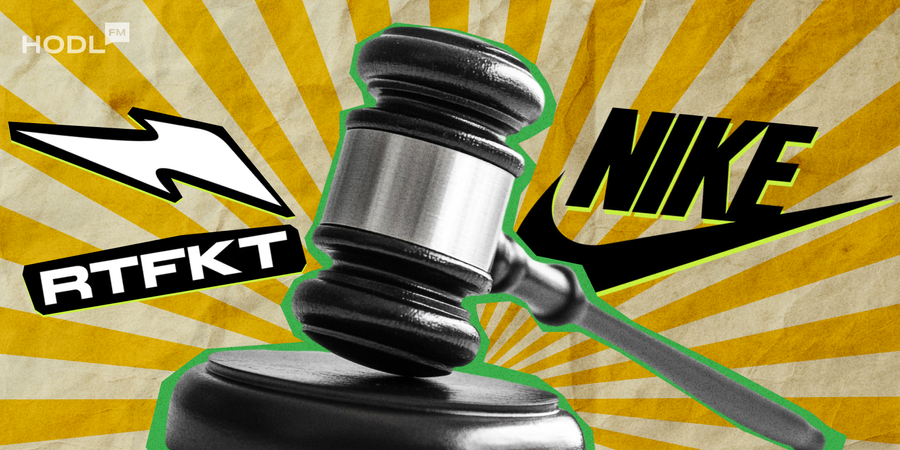After acquiring RTFKT Studios in 2021, the iconic sportswear giant Nike was no longer just a sneaker-selling company - it was aiming for a brand new digital industry. Virtual identity. A new way of connecting with fans. NFTs.
Fast forward to 2025, and their big bet is starting to unravel.
A new class-action lawsuit, filed this week in the U.S. District Court for the District of Oregon, claims Nike abandoned the promises it made to early RTFKT adopters. Plaintiffs argue that Nike and RTFKT’s founders Benoit Pagotto, Chris Le, and Steven Vasilev, misled NFT holders by quietly shutting down key projects like CloneX, MNLTH, and CryptoKicks, leaving them with little more than digital dust.
The lawsuit digs into a core issue: Nike allegedly marketed RTFKT NFTs not just as collectibles, but as access passes to exclusive perks, physical sneakers, community events, and future rewards. But in April 2024, Nike quietly announced via RTFKT's Discord that forging would end for major collections.
For many holders, that was the last straw.
Nike hasn’t commented publicly yet, but according to court documents available via CourtListener, the plaintiffs are asking for damages and restitution, accusing Nike of fraud and unjust enrichment.
It’s a striking turn for a project that once sat at the center of Nike’s Web3 ambitions. Collaborations with artists like Takashi Murakami gave the CloneX avatars a status symbol aura, prices soared into six figures on secondary markets, as was reported at the time.
However, Nike, for its part, doubled down. It filed trademarks for “virtual goods” with the USPTO and rolled out exclusive NFT drops linked to physical merchandise. For a moment, it felt like they had cracked the code on brand loyalty in the metaverse.
But cracks started to show as the NFT market cooled. NFT sales across the industry plummeted by over 90% between 2022 and 2023, and the speculative frenzy dried up. Crypto winter froze community enthusiasm.
In that climate, ending forging events might have made short-term business sense. Yet it came at a steep cost to credibility. What’s emerging here is a broader question: when brands sell NFTs tied to promises of "future utility," are they making binding commitments, or just marketing?
Nike isn’t alone in facing this kind of backlash. Yuga Labs, the team behind Bored Ape Yacht Clubsneaker-selling, has also faced regulatory heat for how it pitched its NFTs to investors. The SEC has increasingly blurred the line between collectibles and unregistered securities.
What’s Next for Nike and Web3?
For Nike, this case could become a defining moment. If it loses, it risks not just financial penalties, but a lasting hit to its credibility among the digital-native consumers it spent years trying to win over.
More broadly, brands flirting with Web3 will have to rethink how they launch NFT projects. Future campaigns may need to lay out crystal-clear terms of service, concrete timelines for delivering benefits, and legal disclaimers where before there were just glossy roadmaps and animated trailers.
The court battle ahead could influence the rules of engagement for corporate NFTs. And if Nike’s recent silence is any clue, the Swoosh knows the stakes are higher than just a few unhappy collectors.





